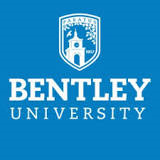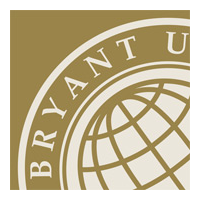What do they do?
Prepare tax returns for individuals or small businesses.
Also known as:
Certified Income Tax Preparer (CTP), Corporate Tax Preparer, Enrolled Agent, Income Tax Preparer, Tax Advisor, Tax Associate, Tax Consultant, Tax Preparer, Tax Professional, Tax Specialist
-
0.9%
Change
Ranks #54 in job growth rate250Job Openings
Ranks #19 in net job growth
-
Bentley University
Waltham, MA
-
Fairfield University
Fairfield, CT
-
Villanova University
Villanova, PA
-
Bryant University
Smithfield, RI
-
Binghamton University
Vestal, NY
Looking for colleges that offer a specific major? Use the College Match Tool to find your best-matched schools and discover your estimated Net Price!
- Doctorate or Professional Degree (5%)
- Master's degree (16%)
- Bachelor's degree (33%)
- Associate's degree (10%)
- Some college, no degree (21%)
- High school diploma equivalent (12%)
- Less than high school diploma (3%)
Most Popular Majors that prepare Tax Preparers
-
#1
-
Degrees Granted
65,244
-
Female Students
35,176
-
Male Students
30,068
-
Median Starting Salary
$46,700
-
-
#2
-
Degrees Granted
9,727
-
Female Students
7,170
-
Male Students
2,557
-
Median Starting Salary
$45,200
-
-
#3
-
Degrees Granted
1,170
-
Female Students
625
-
Male Students
545
-
Median Starting Salary
$48,168
-
People in this career often have these skills:
- Reading Comprehension - Understanding written sentences and paragraphs in work-related documents.
- Active Listening - Giving full attention to what other people are saying, taking time to understand the points being made, asking questions as appropriate, and not interrupting at inappropriate times.
- Critical Thinking - Using logic and reasoning to identify the strengths and weaknesses of alternative solutions, conclusions, or approaches to problems.
People in this career often know a lot about:
- Customer and Personal Service - Knowledge of principles and processes for providing customer and personal services. This includes customer needs assessment, meeting quality standards for services, and evaluation of customer satisfaction.
- Economics and Accounting - Knowledge of economic and accounting principles and practices, the financial markets, banking, and the analysis and reporting of financial data.
- English Language - Knowledge of the structure and content of the English language including the meaning and spelling of words, rules of composition, and grammar.
- Computers and Electronics - Knowledge of circuit boards, processors, chips, electronic equipment, and computer hardware and software, including applications and programming.
- Law and Government - Knowledge of laws, legal codes, court procedures, precedents, government regulations, executive orders, agency rules, and the democratic political process.
- Mathematics - Knowledge of arithmetic, algebra, geometry, calculus, statistics, and their applications.
People in this career often have talent in:
- Near Vision - The ability to see details at close range (within a few feet of the observer).
- Oral Comprehension - The ability to listen to and understand information and ideas presented through spoken words and sentences.
- Written Comprehension - The ability to read and understand information and ideas presented in writing.
- Deductive Reasoning - The ability to apply general rules to specific problems to produce answers that make sense.
- Oral Expression - The ability to communicate information and ideas in speaking so others will understand.
- Inductive Reasoning - The ability to combine pieces of information to form general rules or conclusions (includes finding a relationship among seemingly unrelated events).
People in this career often do these activities:
- Calculate tax information.
- Interview clients to gather financial information.
- Examine financial records.
- Verify accuracy of records.
- Advise others on financial matters.
- Update professional knowledge.
- Explain regulations, policies, or procedures.
- Develop financial plans for clients.
- Correspond with customers to answer questions or resolve complaints.
- Schedule appointments.
This page includes data from:

 Occupation statistics: USDOL U.S. Bureau of Labor Statistics Occupational Employment Statistics
Occupation statistics: USDOL U.S. Bureau of Labor Statistics Occupational Employment Statistics









